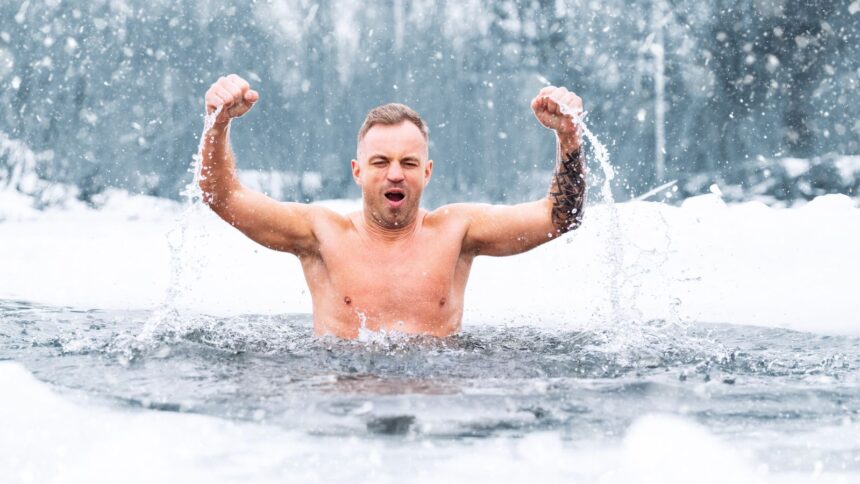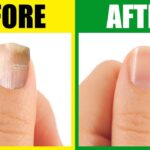Humans inherently dislike freezing or starving conditions. We usually gravitate towards a warm climate and ample food supply, a pursuit of temperature comfortability. Our ancestors, over the years, have adapted to varying temperatures, especially due to the seasonal changes brought by winter.
In today’s era, we have devised ways to evade harsh winters simply by adjusting our thermostats to 70 degrees Fahrenheit. Against this backdrop, my goal is to delve into intriguing research studies exploring the impact of cold water immersion on our genes.
Cold Water Immersion and Your Genes
The primary objective of this discussion is to expound on how using cold therapy can greatly affect your genes in a positive way. In my personal experience, I have a cold water immersion tank outside my house. My first use was with the temperature set to 37 degrees, an incredibly chilling environment. This is not recommended for first-timers, as I could only last five seconds.
Acclimating to Cold Water Immersion
A more feasible approach would be to start at 50 degrees Fahrenheit, or 10 degrees Celsius, beginning with just a minute, then gradually increasing from there. However, to experience the benefits of this cold therapy, you want to be uncomfortable. For the benefits I’m about to discuss, you only really need 11 minutes per week, a very achievable goal for most.
Even if you don’t have a cold water immersion tank, you can apply this with a cold shower, a really cold pool, or maybe by jumping in a pond. Different ways exist to benefit from this therapy.
Comparing Cold Therapy to Warm Therapy
Comparing cold therapy to its counterpart, warm therapy such as a hot shower, you’re definitely going to experience more benefits with the cold version, primarily because it’s more uncomfortable. If the idea seems unfathomable or intolerable, it could be that you just need more B vitamins. These vitamins aid in increasing tolerance to extreme temperatures.
Unboxing the Cold Plunge Store Experience
Notably, I get my cold water immersion tank from the Cold Plunge Store, where I purchased the model called the Flex. Although I’m not affiliated with this kind company, nor do I receive any kickbacks, I highly endorse their products. The benefits are incredible, with a range of advantages pertaining to cognitive benefits, physical inflammation repair, and more.
The Cold Water Immersion Journey
Entering the tank initially, you’ll notice your pulse rate increase, your heart rate will also climb. It’s likely you’ll feel the urge to hypervate, you might even experience respiratory gasping where your breathing is affected. In this situation, focusing on controlling your breath is essential. Take it slow, breathe in and out at a steady pace to help combat the shock of entering the cold water immersion.
The Multitude of Benefits: Decreasing Certain Parameters
Cold water immersion can work wonders on your body in various ways, especially through decreasing certain parameters. For instance, the ratios of something called APO A to APO B, related to cardiovascular risk, can be decreased. Other benefits include decreased homocysteine levels, another factor associated with cardiovascular problems, and decreased oxidative stress.
Interestingly, the therapy can also result in a decrease in cortisol and the hormone that controls cortisol, ACTH. This might seem counterintuitive because you would think your stress levels would rise, but they actually decrease. Not immediately, but as soon as you step out of the tub and relax.
Boosting the Immune System and Reducing Insulin
Cold water immersion also results in decreased antibodies, strengthening your immune system, particularly beneficial for those with an autoimmune problem. Additionally, your insulin levels decrease, a massive benefit considering the numerous health problems associated with high insulin levels.
Other advantages include reduced uric acid levels, lower risk for upper respiratory tract infections (particularly beneficial for swimmers who also enjoy the cardiovascular benefits and often colder pool temperatures), decreased depression levels, and a reduction in pain and inflammation.
Enhancing Muscle Recovery and Decreasing Tumor Growth
Even muscle soreness can be decreased through this therapy. It’s important to note that research suggests repeated cold therapy might inhibit muscle growth. However, when you’re only doing 11 minutes per week, it’s highly unlikely to impact your muscles negatively. The benefits far outweigh any potential downside.
You’ll also find that your recovery time decreases when you engage in this therapy, especially after an exercise or athletic event. There’s also evidence showing that cold therapy inhibits tumor growth, perhaps due to the spike in brown fat which can absorb a lot of glucose, the fuel for cancer cells.
The Benefits of Cold Therapy: What Increases
Conversely, cold water immersion can increase certain parameters. For instance, it can enhance your thyroid-stimulating hormone as well as increase T3, the active form of thyroid hormone. Cold therapy boosts your killer T cells, which fight viruses and cancer, and it can increase your overall white blood cells.
Another significant benefit is the increase in mental resilience. This is your capacity to adapt to stress. Cold therapy can make you mentally stronger, similar to fasting, where abstaining from food for a period develops a stronger willpower.
The Genetic Expression of Cold Therapy
Cold therapy results in the activation of certain genes that were otherwise inhibited. For instance, there’s a gene called PGC-1 Alpha. When this gene is activated, it promotes the growth of mitochondria, aiding your metabolism and helping generate more oxygen in the body.
There’s also a gene called VEGF, which increases blood vessels, and another called PPARGC1A, which can increase your capacity to use oxygen (VO2 max). A gene called PSME1 can reduce the accumulation of damaged protein in the body, a common source of problems.
Antioxidant Boost and Strengthening Stress Tolerance
Another gene related to glutathione is expressed during cold therapy, increasing antioxidants. Interestingly, heat therapy, such as in a sauna or jacuzzi, can inhibit your antioxidants. So, if you have a problem genetically with oxidative stress, perhaps you should focus more on cold therapy than heat therapy.
There’s also a gene called ACTN3 that increases your tolerance to stress. The more you engage in cold therapy, the more tolerant and resistant to stress you become, and the more mentally resilient you are.
Enhanced Protein Synthesis and Anti-Inflammatory Effects
Lastly, the genes RBM3 and CIRP lead to improved survival of your cells, stabilized RNA, enhanced protein synthesis, and anti-inflammatory and antioxidant effects.
So, as you can see, the benefits of cold water immersion are enormous. I would argue that it’s beneficial to alternate this with heat therapy. Even though we can now overcome the cold winter by just turning the thermostat to 70 degrees, it is essential that we do not forget the potential health benefits that cold can bring to our lives.
DATA:
https://www.ncbi.nlm.nih.gov/pmc/articles/PMC9518606/
https://link.springer.com/article/10.1007/s00421-016-3480-1












